Thanks in large part to the United Kingdom’s robust National Healthcare System and strong network of HIV and AIDS resource centers, the London participants in Through Positive Eyes were living healthy and productive lives when the workshop took place in March 2015. This is not to say that the London group members do not struggle with stigma and other HIV-related complexities—however, they tell an important story about the impact that consistent healthcare (including mental healthcare) and supportive housing and resource centers can make on the quality of life, treatment adherence, and personal empowerment of people living with HIV and AIDS. It is worth stating, even if self-evident, that greater resources translate to greater health.
United Kingdom’s AIDS Epidemic, as of 2015
- Number of people living with HIV
- 101,200
HIV Prevalence
- Adults (15–74 years)
- 0.21%
- Men who have sex with men
- 5.87%
- People who inject drugs:
- 1%
Treatment
Free universal treatment is available from the National Health Service.
- Numbers on treatment
- 88,769
- % of those needing treatment who are receiving it
- 83%
- % of those in treatment with no detectable virus
- 78%
Key Events
- 1987
- “Don’t die of ignorance” mass national campaign: Princess Diana holds the hand of a patient in an AIDS ward at London Middlesex Hospital.
- 1988
- Section 28 of the Local Government Act prevents teachings that “promote homosexuality” in schools, a statute only repealed in 2003.
- 2010
- The Equality Act qualifies anyone living with HIV as disabled, which gives protection against discrimination.
- 2016
- Campaigners fight for, and win, provision of pre-exposure prophylaxis by the National Health Service.
Update 2019
By 2017, adult HIV prevalence in the U.K. had fallen to 0.2% of the population and 90% of people living with HIV were on treatment. Of these, >95% were virally suppressed. In 2018, London was the first global city to exceed UNAIDS 90-90-90 targets. The reduction in new infections has been driven mostly by fewer diagnoses among men who have sex with men, which have decreased by 31% since 2015.

Aaron
I was diagnosed in 2004 when I was living in Spain. (I was born in Mexico and have been living in London now for eight years.) I was quite shocked and said, “How long do I have?” I was still full of …
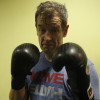
Chris
I was already ill when, in short order, I contracted a whole host of opportunistic infections: pneumonia, esophageal candida, herpes, thrush. It was like when you see those nature films where you …
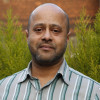
Darren
My life is very much focused on family and my responsibilities as a parent of eight children. HIV is a very small part of my life and it is not something that dictates how I move or how I view …

Gordon
About ten years ago, my life imploded and I felt completely out of control. I was in a relationship that was killing me. My friends were telling me that I was going to die and I could not see it. He …

Graeme
I was diagnosed in the very early days of the epidemic. I wasn’t aware of anybody else in my circle having HIV. It did seem like a death sentence then. You literally didn’t know whether you had …
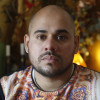
Isaac
My life revolves around four little creatures. I love my dogs dearly, but they also really annoy me. Bella is my baby. She has been the stability within my unstable life, living with HIV. I’ve always …

James
Sexual intimacy—unapologetic sexual intimacy—is an integral part of many human relationships. In the early days of my diagnosis, I was afraid of transmitting the virus to partners. Sex was …
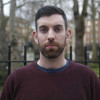
Joshua
In London, a lot of gay men use Grindr, which is a dating app. A lot of people use it for casual sex. You look at the profiles of people on there, and they all say, “Clean, STI free,” which means no …
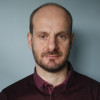
Keith
I am an openly gay man who happens to be HIV-positive, but I’m not so open about my HIV status. In my photos, I remain anonymous. I don’t really reveal myself. I’m there, but I’m hiding, I suppose. …
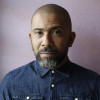
Marc
I tried to remember what it felt like to be negative as a young gay man and couldn’t. I probably had a year of living gay and HIV-negative. You know, I was seventeen when I was diagnosed. I had had …
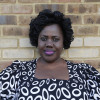
Maureen
I come from Zimbabwe. But now I live in London and I’m British. When I came to the UK, I started losing weight and having fevers. Something was suspicious. I collapsed in my house and was taken to …
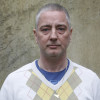
Michael
I moved from Liverpool to London in the late ’80s, looking for a different life and excitement and somebody to love. When I arrived, I found what I was looking for in abundance. It was everywhere. I …
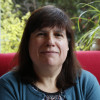
Virginia
I was born in Argentina. I live in London now because my husband is a Londoner, London-Irish. We met in 1993 in India. We sent letters for three years and then, when we met again, they diagnosed me …
Supporters
Through Positive Eyes in London was organized in partnership with Positively UK, with assistance from Dean Street Clinic, Baseline, Forum Link, and St. Anne’s Anglican Church. Major funding was provided by The Herb Ritts Foundation, with additional support from The Ford Foundation, Gere Foundation, and UCLA.